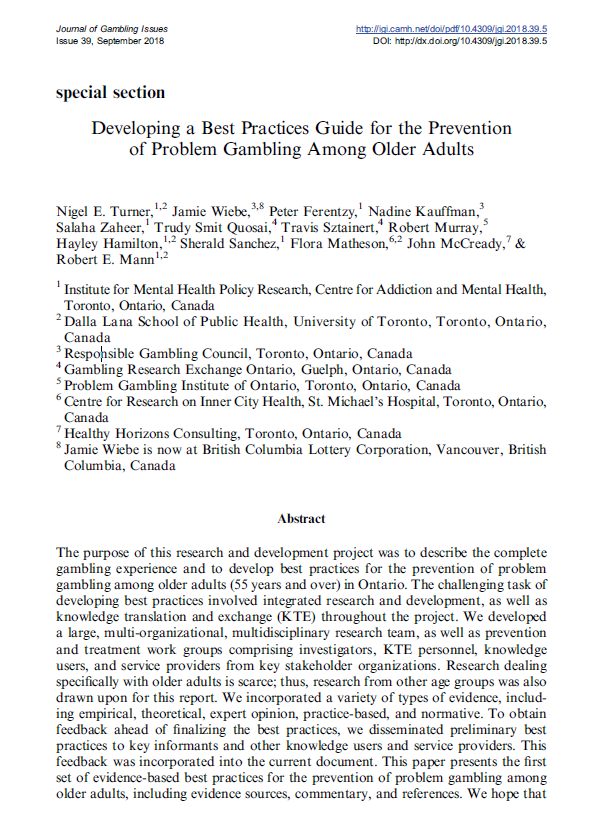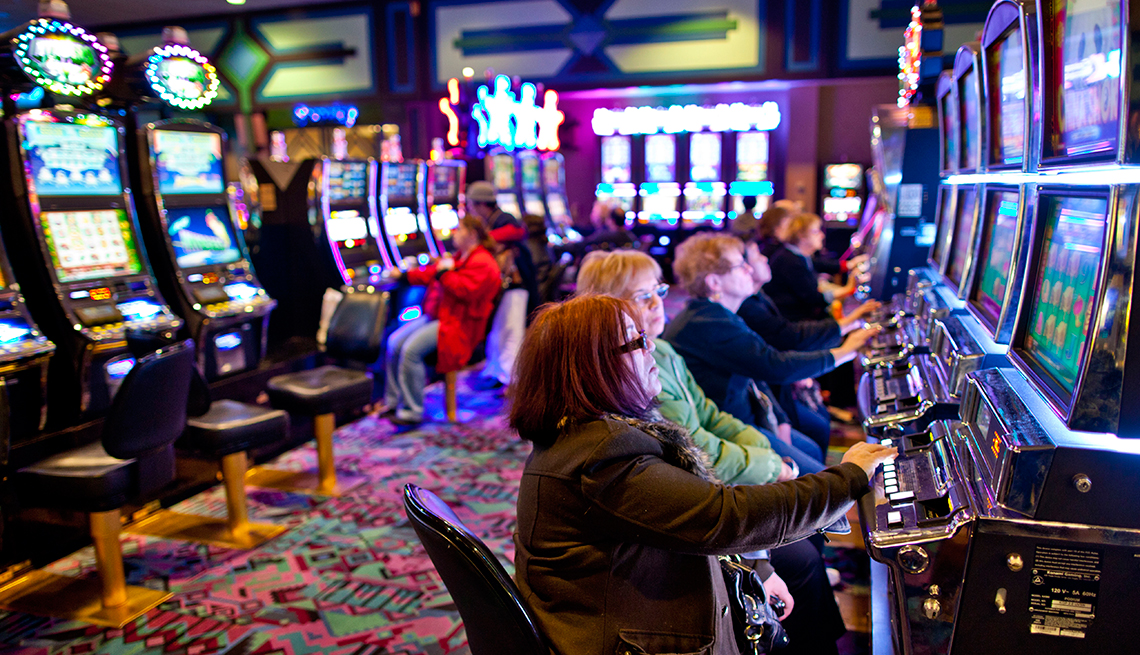Gambling Problems In Older Adults
- To identify a gambling problem. Older adults appear less willing to seek assistance for a gambling problem than younger adults. Many older adults hide their gambling because of the stigma associated with it and health professionals rarely assess for problem gambling. Many older adults have easy access to gambling and are drawn to.
- Gambling and disordered gambling facts: older adults Founded in 1983, the Massachusetts Council on Compulsive Gambling is a private, non-profit public health agency dedicated to reducing the social, financial, and emotional costs of gambling-related problems.
Background: Despite the growth in the number of studies on gambling disorders (GDs) and the potentially severe harm it may cause, problem gambling in older adults is rarely apparent in literature. Driven by the need to overcome this limitation, a broad systematic review is essential to cover the studies that have already assessed the.
Are You Gambling Away Your Retirement?

Did you know that seniors are one of the fastest-growing groups of gamblers? According to one study, gambling was the most frequently identified social activity among adults over 65, with casinos and bingo surpassing movies, lunch, shopping and golf as preferred social activities. Learn more about why seniors are vulnerable to gambling addiction and the signs of problem gambling.
As with other segments of the population, most older adults enjoy gambling as a fun recreational activity. However, for some it can become an addiction, bringing potentially devastating consequences.
Gambling Is Increasingly Popular Among Older Adults
Seniors are one of the fastest-growing groups of gamblers. One study found that gambling was the most frequently identified social activity among adults over 65, with casinos and bingo surpassing movies, lunch, shopping and golf as preferred social activities.
Older adults have higher gambling participation rates than ever before due primarily to the aging population and the rapid expansion and increased access to legalized gambling. According to the American Gaming Association’s 2013 Survey of Casino Entertainment, casino visitation rates among the elderly are high, with 28 percent of people aged 65 and older reporting having gone to a casino in 2012. Research at the University of Pennsylvania revealed that 70 percent of those 65 or older said they had gambled in the previous year, with nearly 10 percent admitting to gambling away more than they could afford to lose.

The number of older adults participating in gambling is expected to rise considerably given that Americans over 65 represent the fastest growing age group. By 2030, this segment of the population is expected to total approximately 71 million, accounting for one in five Americans.
It’s Time to Talk Again: A Way to Approach Seniors About Gambling
Gambling Among Today’s and Tomorrow’s Seniors
Gambling Is Increasingly Popular Among Older Adults
Casinos Market Heavily to Seniors
Casinos cater to seniors by enticing them with free bus transportation, free or discounted meals and entertainment, promotional coupons (such as player reward cards) and other prizes. Casinos also provide seniors with wheelchairs or motorized scooters to make them feel at home in their facilities.
Signs of Gambling Addiction in Seniors
Because seniors tend to live away from their younger family members, their addiction can remain hidden for long stretches of time. However, there are some detectable signs that an older adult may have a gambling addiction. Seniors may:
- appear withdrawn or are frequently unavailable
- be vague when describing their days and activities
- have sold off their valuable possessions for unexplained reasons
- talk a lot about exciting wins – but never discuss their losses
Gambling Problems In Older Adults Pictures
For a more complete list of the signs of problem gambling, click here.
Female Seniors Are Fastest Growing Group of Problem Gamblers
Studies have shown that addiction rates are currently rising for seniors. As baby boomers continuing moving into retirement, experts believe the number of addicted seniors will continue to rise, presenting a worsening socioeconomic problem.
Gambling Problems In Older Adults Symptoms
The fastest growing group of problem gamblers is female seniors, due mainly to the loss of a spouse, as women typically outlive men. Compared to men, women experience a later age of onset of habitual gambling (54.8 versus 33.2) and reach problematic levels of gambling faster (5.6 years versus 16 years for men). However, women enter treatment sooner than men (4-5 years versus 11 years).
Help Is Available
If you or someone you know needs help, call the Minnesota Problem Gambling Helpline at 800-333-4673. The Helpline is available 24 hours a day, seven days a week, and provides free, confidential help from specially trained counselors. Treatment is available at no cost to Minnesotans with gambling problems. Additional resources available in Minnesota can be found here.

Download the Seniors Problem Gambling Symptoms Card here.
Older Adult Problem Gambling Radio Spot
Gambling Problems In Older Adults In America
http://northstarproblemgambling.org/wp-content/uploads/2017/06/NoStarGambling15AV100602.mp3Concerns about Older Adults and Problem Gambling
Gambling among older adults is different from gambling in younger age groups for the following reasons:


Gambling Problems In Older Adults Living
- When people are coping with big changes or losses they are more vulnerable to develop a gambling problem; many older adults face life transitions and losses, such as death of loved ones, end of career or isolation from family and friends
- Older adults who have gambled away their retirement savings don’t have working years to make up their losses
- Many older adults may not understand addiction, making them less likely to identify a gambling problem
- Older adults appear less willing to seek assistance for a gambling problem than younger adults
- Many older adults hide their gambling because of the stigma associated with it; health professionals rarely assess for problem gambling
- Many older adults have easy access to gambling and are drawn to gambling to fill their time or to be with other people
- Some older adults may have cognitive impairment that interferes with their ability to make sound decisions
Addicted seniors are either gambling their retirement funds away or spending too much of their fixed income, leading to unmanageable financial strain. Over time, seniors feel the financial burden of continued betting and often believe they must continue gambling to overcome their financial stress. Once addicted, it can be very difficult to break this cycle that will eventually lead to financial ruin.